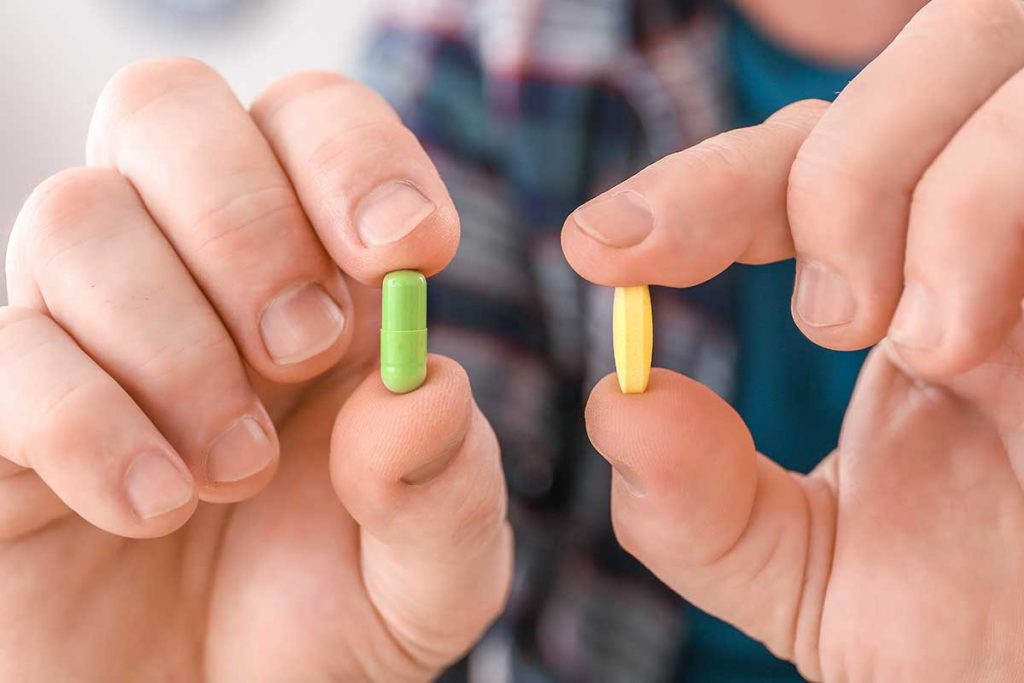The abuse of opioids and opiates is one of the most significant challenges facing healthcare systems. While these drugs have some differences, most people do not know this and tend to mix their names. These substances are addictive and can cause serious health issues if used for an extended period. However, seeking treatment for opioid addiction at TruHealing Centers can prevent further harm. Contact us today at [Direct] for more information about your addiction treatment program options.
The Difference Between Opioids and Opiates
Opioids are a class of drugs that bind to opioid receptors in the nervous system and the brain. In the past, this term referred to synthetic medication, but it now includes other substances made from plants. On the other hand, the term opiate refers to all drugs obtained from the opium poppy plant.
Opiates also attach to the opioid receptors, making them a subcategory of opioids. Some of the most common opiates are heroin, codeine, and morphine. Some synthetic opioids like fentanyl are more potent than opiates and effective in treating severe or chronic pain. Other examples of synthetic opioids include buprenorphine and methadone.
Signs of Opioid Addiction
A considerable number of people that abuse opioids start this behavior after using it for medical purposes. While they are useful, using them for long causes the body to adapt to the drug’s presence, leading to addiction. In some cases, users experience withdrawal symptoms after completing a prescription. Some of these effects may be uncomfortable and can influence one to use alternative drugs like heroin.
Identifying the signs of opiate addiction can help you get professional help. One symptom of addiction is the inability to stop using the drug even when it causes problems. Such issues include family conflicts and poor performance at school or work.
Other than that, opioids interfere with thinking, influencing the user to make decisions that may endanger their life. For instance, they may be more inclined to take part in risky or criminal activities such as buying weapons, committing theft, and starting fights. The substance can also cause extreme mood swings and changes in sleeping patterns. Other signs of opioid addiction include reduced personal hygiene and stealing money to buy drugs.
Opioids Withdrawal Symptoms
Drug abuse causes dependence, which leads to withdrawal symptoms when the drug’s effects wear off. The signs shown will depend on the type of opioid used, the level of addiction, and if the user has another health issue. Withdrawal can lead to muscle aches, diarrhea, nausea, and vomiting. In some cases, it can cause insomnia, anxiety, and increased body temperature. Other common heroin withdrawal signs are chills, abdominal pain, and tremors.
Most opioid withdrawal effects are uncomfortable and unpleasant, but they do not cause adverse effects. Still, some highly potent opioids like fentanyl can lead to life-threatening health issues. It is, thus, recommendable to seek professional help when stopping the use of opioids.
Opioid Addiction Treatment
The most crucial step in treating addiction is getting rid of toxins from the body through detox. Facilities that have a medical detox program are the most suitable for this procedure. They observe their patients throughout to prevent and deal with any health complications.
Furthermore, they can give medication that will reduce the pain and discomfort caused by the process. After completing detox, it is vital to enroll for a long-term addiction treatment program. Taking this step will assist in recovery and equips patients with skills to prevent relapse. Some of the programs suitable for opiate addiction treatment are:
- Residential treatment program
- Intensive outpatient program
- Dual diagnosis program
- Partial hospitalization program
TruHealing Centers Opioids Addiction Treatment
Getting professional help for drug abuse can help in identifying what influences the behavior. At TruHealing Centers, we offer customized programs to help you recover from opioid addiction. We also have various therapies that will improve your mental health and help you learn how to avoid drug abuse triggers. Some of these include group, individual, family, and trauma therapy. Contact TruHealing Centers at [Direct] for professional opioid addiction treatment.








